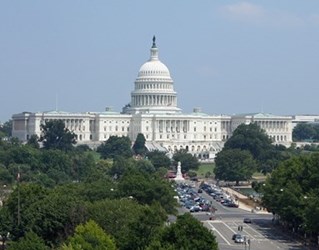FDA Officials Make A Case For Re-Authorization Of User Fees Before Senate Committee
By Jof Enriquez,
Follow me on Twitter @jofenriq

Top officials of the U.S Food and Drug Administration (FDA) testified before a Senate HELP (Health, Education, Labor, Pensions) Committee to stress the rationale for re-authorizing user fee programs designed to streamline regulation and speed access to innovative and lifesaving medical products.
In their joint testimony, Jeffrey Shuren, director of FDA’s Center for Devices and Radiological Health (CDRH), Janet Woodcock, director of FDA’s Center for Drug Evaluation and Research (CDER), and Peter Marks, director of FDA’s Center for Biologics Evaluation and Research (CBER), all touted the continuing success of their respective center's user fee programs in fulfilling FDA's mandate to protect public health, improve the predictability of review processes, and accelerating innovation in the industry.
Shuren pressed for the five-year re-authorization of the 2012 MDUFA (Medical Device User Fee Act) III agreement (expires in September 2017) which has significantly reduced decision times for medical devices under review. According to Shuren, as of 2015, PMA decisions were made in just 276 days (35 percent faster in six years), 510(k)s decisions only took 133 days (11 percent faster), and IDE (Investigational Device Exemption) approvals were done in just 30 days, which is 93 percent quicker than the 442 days it took in 2011. De novo requests were decided in 259 days on average in 2014, down from 770 days in 2009 – a 66 percent decrease in five years.
Since 2009, the number of innovative devices CDRH approved almost quadrupled, according to Shuren. In 2016, the center approved 91 innovative devices — the highest of any year since the user fee program began in 2003. Shuren then cited the "artificial pancreas" and transcatheter aortic valve replacement (TAVR) devices as examples of innovative products that have reached U.S. patients earlier due to speedier regulation enabled by user fees.
Shuren says authorizing MDUFA IV will ensure there are sufficient user fee resources to build on these accomplishments and start new initiatives— such as a new quality management program — strengthen patient input, and establish the National Evaluation System for Health Technology, or NEST.
"The MDUFA IV agreement, which was supported by a broad array of stakeholders during the public review of the draft agreement, will expedite the availability of innovative new products, and its enhancements will continue to increase the efficiency of FDA’s programs," Shuren told the Senate committee. "Improvements in total time to decision, transparency, consistency, and predictability will benefit industry, healthcare providers, and, most importantly, patients."
AdvaMed said of the hearing, “We support this new MDUFA package because we believe it is good for patients, good for innovation and good for the agency. The agreement builds on the progress from the 2012 user fee agreement to further improve FDA’s device review process while maintaining robust standards for patient safety."
The Medical Device Manufacturers Association (MDMA) stated, "It is critical that all stakeholders continue to work together to make the regulatory pathways more predictable and transparent so that innovators can deliver the cures and therapies of tomorrow."
During the hearing, some members of the Senate HELP committee questioned FDA's ability to approve new and first generic drugs to increase competition and bring down pharmaceutical costs, according to RAPS.
CDER director Woodcock reportedly said FDA is only currently reviewing six first generics and nine sole-source generic drugs, or generics with only one competitor, and that it is working to reduce the number of review cycles generic drug applicants go through before approval. CBER director Marks added that there are more than 550 active investigations testing new gene and cell therapies.
According to RAPS, it’s unlikely that user fee goal letters would be reworked, or that further negotiations would be needed before the bills are marked up, voted on, and sent to President Donald Trump for his signature.
